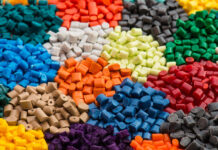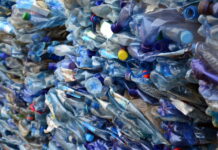BlueWeave Consulting, a leading strategic consulting and market research firm, in its recent study, estimated the global zero liquid discharge (ZLD) systems market size at USD 7.04 billion in 2022. During the forecast period between 2023 and 2029, BlueWeave expects the global zero liquid discharge (ZLD) systems market size to grow at a significant CAGR of 7.73% reaching a value of USD 11.77 billion by 2029. The stringent government regulations regarding wastewater discharge, which has resulted in the destabilization of the ecosystem and water bodies boosting the market growth. ZLD systems aim to remove all liquid and solid waste from a system and produce clean water suitable for reuse. The captured solid waste can be repurposed for various industrial processes. The clean water obtained from ZLD water treatment systems is used as a coolant for systems and in different industrial processes such as cooling tower blowdown, boiler blowdown, and oil refinery effluent. The growing demand for water conservation and environmental protection in various industries has also led to an increased preference for zero liquid discharge systems.
Opportunity: Increasing Government Regulations Regarding Wastewater Management and Discharge
Governments across countries are implementing strict regulations on wastewater discharge, including limits on the number of pollutants that can be discharged into water bodies. As a result, industries are increasingly turning to ZLD systems to comply with these regulations and avoid costly penalties. For example, in India, the Central Pollution Control Board (CPCB) has mandated that all industries in heavily polluted areas must implement ZLD systems by 2022.
Similarly, the US Environmental Protection Agency (EPA) has implemented the Effluent Limitation Guidelines (ELG) program, which sets limits on the amount of pollutants that can be discharged from industrial facilities into water bodies. Companies in the zero liquid discharge (ZLD) systems market are benefiting from these regulations by providing innovative solutions that enable industries to comply with these regulations. For example, Suez Water Technologies & Solutions has developed the Aquapure ZLD system, which is designed to recover up to 95% of the wastewater generated by industries and eliminate liquid discharge. Similarly, Aquatech International offers a range of ZLD solutions, including its HERO (High-Efficiency Reverse Osmosis) technology, which provides an efficient and cost-effective solution for treating wastewater. As governments continue to implement stricter regulations on wastewater discharge, the demand for ZLD systems is expected to continue to grow. The development of new and innovative technologies, coupled with the increasing focus on environmental sustainability, is likely to further drive the growth of the global ZLD systems market in the coming years.
Sample Request @https://www.blueweaveconsulting.com/report/zero-liquid-discharge-systems-market/report-sample
Impact of COVID-19 on the Zero Liquid Discharge (ZLD) Systems Market
The COVID-19 pandemic significantly impacted the global zero liquid discharge (ZLD) systems market. There was a decrease in demand for ZLD systems from industries such as oil & gas, due to the pandemic. On the other side, the pandemic increased awareness about the need for sustainable water management and environmental protection, leading to an increased demand for ZLD systems in industries, such as pharmaceuticals, food and beverages, and power generation. The pandemic has highlighted the need for resilient and self-sustaining systems, which has increased the interest in ZLD systems that can provide reliable and sustainable water management solutions.
Global Zero Liquid Discharge (ZLD) Systems Market – By Application
On the basis of application, the global zero liquid discharge (ZLD) systems market segments include energy & power, food & beverages, chemical & petrochemical, textiles, and pharmaceutical. The energy & power segment dominates the market. The growing population and rapid urbanization have led to an increase in global energy demand, resulting in the construction of more industries and power plants. Thus, there has been an increased demand for ZLD systems, particularly in the thermal power plant sector. Thermal power plants still cover a major portion of the energy supply and are a significant contributor to water pollution, making them a key sector for the application of ZLD systems. Companies in the ZLD systems market are developing innovative solutions to meet the increasing demand from the thermal power plant sector. For example, Aquatech International offers a range of ZLD solutions specifically designed for thermal power plants. Its patented HERO (High-Efficiency Reverse Osmosis) technology is a more efficient solution for treating wastewater, reducing energy consumption, and operating costs. The increasing energy demand, coupled with stricter environmental regulations, is expected to spur the demand for ZLD systems in the energy & power segment.
Competitive Landscape
The global zero liquid discharge (ZLD) systems market is fragmented, with numerous players serving the market. The key players dominating the global zero liquid discharge systems include Aquatech International LLC, Veolia Water Technologies, Suez Water Technologies & Solutions, GE Water and Process Technologies, H2O GmbH, Saltworks Technologies Inc., IDE Technologies Ltd., Doosan Hydro Technology LLC, U.S. Water Services, Inc., Aquarion AG, Oasys Water, Inc., Kelvin Water Technologies Pvt Ltd, Praj Industries Ltd, Transparent Energy Systems Pvt Ltd, and Austro Chemicals & Bio Technologies Pvt Ltd. The key marketing strategies adopted by the players are facility expansion, product diversification, alliances, collaborations, partnerships, and acquisition to expand their customer reach and gain a competitive edge in the overall market.
Contact Us:
BlueWeave Consulting & Research Pvt. Ltd
+1 866 658 6826 | +1 425 320 4776 | +44 1865 60 0662












